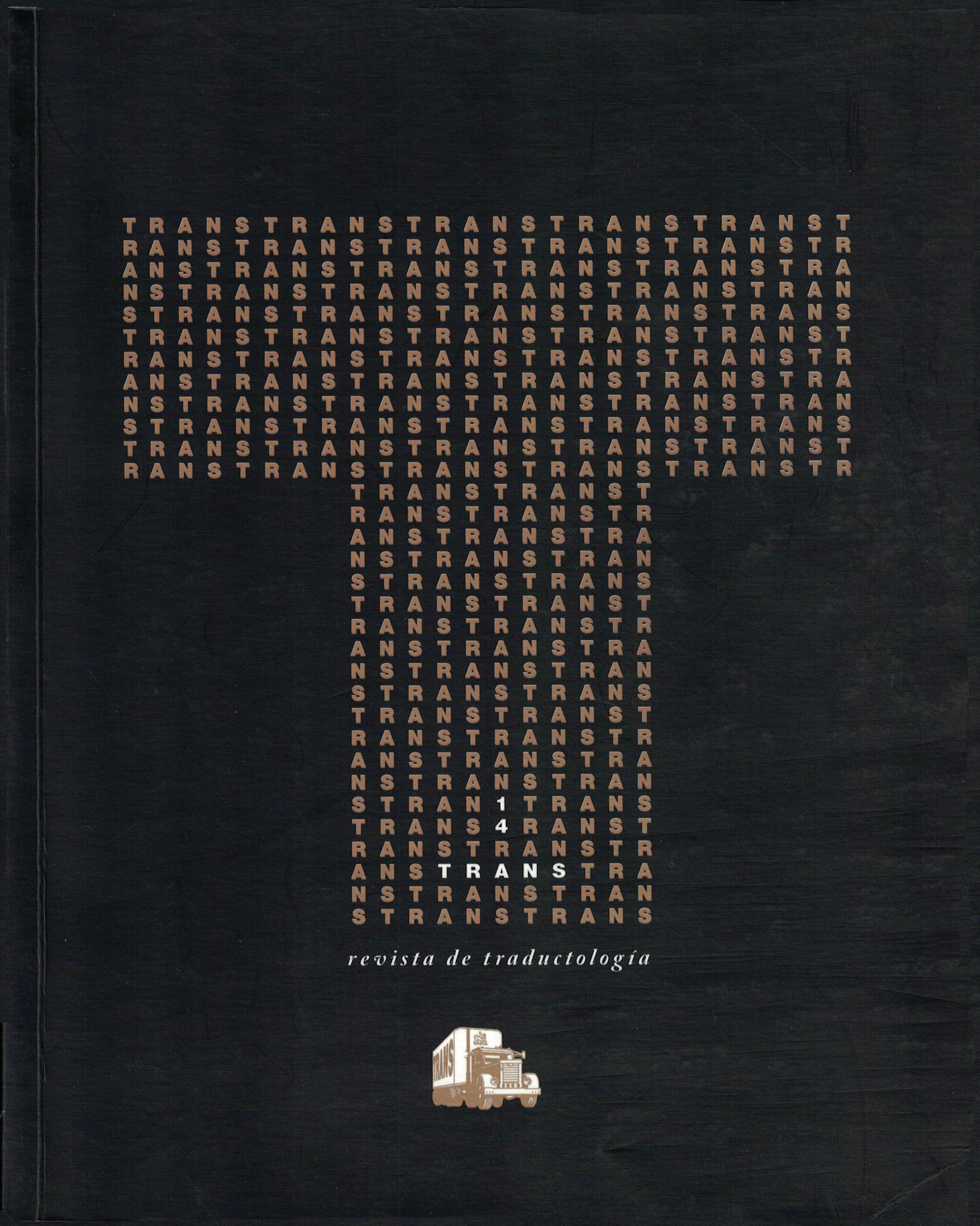Literal Translation as a Strategy of Deterritorialization and Special Case of Code-switching in Sandra Cisneros’s Woman Hollering Creek
DOI:
https://doi.org/10.24310/TRANS.2010.v0i14.3176Keywords:
deterritorialization, Sandra Cisneros, Chicano literature, literal translation, code-switching, enunciative heterogeneitiesAbstract
This article approaches the study of literal translation as a strategy of deterritorialization and as a special case of code-switching in Woman Hollering Creek, a collection of stories by the Chicana writer Sandra Cisneros. In order to explore this strategy of deterritorialization, we will examine a selection of idiomatic expressions which, placed at the lexicalsemantic and pragmatic levels of discourse, are perceived as literal translations from Spanish to English. Given the relationship between the deterritorialization of language, code-switching and literal translation in the construction of Cisneros’s discourse, we will present two complementary sociolinguistic models (Myers-Scotton, 1993a, 1993b) which might combine with the theory of enunciative heterogeneities (Authier, 1984, 1995) to account for the cases of literal translation found in this narrativeDownloads
Metrics
Publication Facts
Reviewer profiles N/A
Author statements
Indexed in
-
—
- Academic society
- N/A
- Publisher
- Universidad de Málaga
Downloads
Published
How to Cite
Issue
Section
License
All contents published in TRANS. Revista de Traductología are protected under the Creative Commons Attribution-NonCommercial-ShareAlike 4.0 International (CC BY-NC-SA 4.0) license. All about this license is available in the following link: <http://creativecommons.org/licenses/by-nc-sa/4.0>
Users can copy, use, redistribute, share and exhibit publicly as long as:
- The original source and authorship of the material are cited (Journal, Publisher and URL of the work).
- It is not used for comercial purposes.
- The existence of the license and its especifications are mentioned.
- ShareAlike — If you remix, transform, or build upon the material, you must distribute your contributions under the same license as the original.
There are two sets of authors’ rights: moral and property rights. Moral rights are perpetual prerogatives, unrenounceable, not-transferable, unalienable, imprescriptible and inembargable. According to authors’ rights legislation, TRANS. Revista de Traductología recognizes and respects authors moral rights, as well as the ownership of property rights, which will be transferred to University of Malaga in open access.
The property rights are referred to the benefits that are gained by the use or the dissemination of works. TRANS. Revista de Traductología is published in an open access form and it is exclusively licenced by any means for doing or authorising distribution, dissemination, reproduction, , adaptation, translation or arrangement of works.
Authors are responsable for obtaining the necessary permission to use copyrighted images.













21.png)
